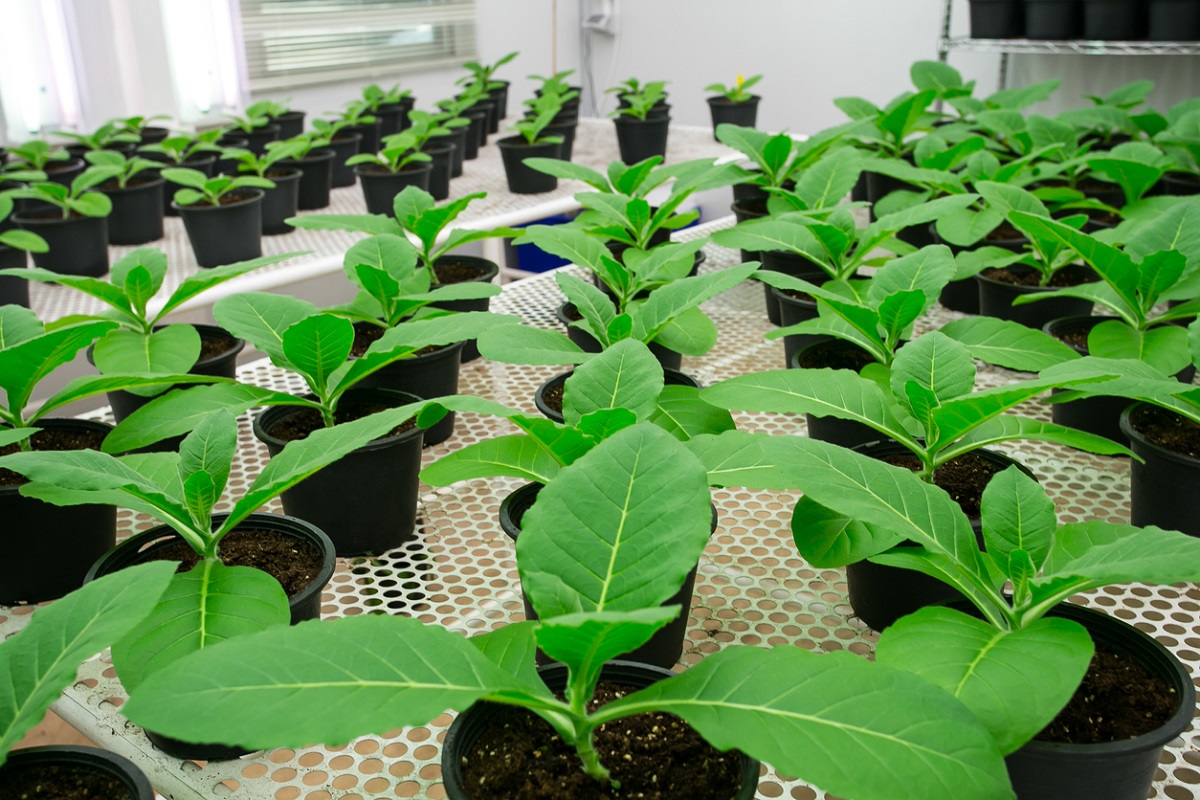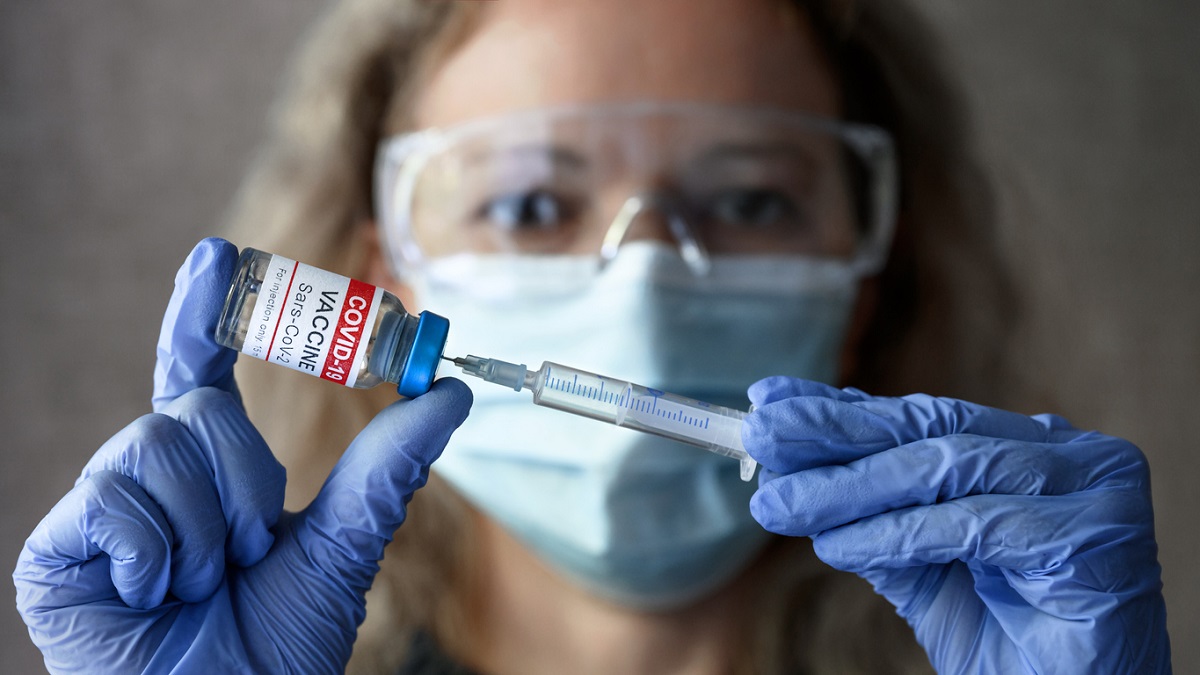Plant Biotechnology, Plant Viruses, and Pharmaceuticals
| |
In February 2023, Mitsubishi Chemical Group announced its decision to stop Medicago Inc.’s operations. Medicago was a pharmaceutical company based in Quebec, Canada that made headlines at the height of the COVID-19 pandemic when it successfully used plant molecular farming to create COVIFENZ® COVID-19 vaccine. The company is regarded as a pioneer in its field, and its closure has left people wondering about the future of using plant-based technology in producing vaccines and other pharmaceutical products.

A brief history of plant molecular farming
The technology’s concept emerged in the 1980s when the marker gene for ß-glucuronidase, an enzyme that helps break down complex carbohydrates, was successfully transformed in higher plants. This was followed by the successful production of human growth hormone in transgenic tobacco and sunflower plants and the production of human antibodies using plants in the same decade. As time passed, scientists discovered more ways to efficiently use plants in the production of vaccines and therapeutic proteins. New trends in plant molecular farming have emerged that allow researchers to use plants in controlled conditions to develop recombinant products that can be injected or taken orally by recipients.
The technology produces vaccines meant for both humans and animals. In 2006, the United States (US) Food and Drug Administration (FDA) approved an injectable vaccine against the Newcastle disease virus for poultry, which was derived from transformed cell cultures of Nicotiana benthamiana, a relative of the common tobacco plant. In 2012, the FDA also approved a plant-derived recombinant human enzyme for the treatment of Gaucher’s disease, a genetic disease that affects the liver and spleen. And in 2022, Medicago launched COVIFENZ® COVID-19 vaccine, followed by a vaccine against seasonal flu.
Combining plant viruses and biotechnology to develop medical products
Scientists use plant viruses for the conduct of plant molecular farming, particularly to construct virus-like nanoparticles (VNPs) that can be used against other viruses known to cause harm to humans and animals. Plant viruses have simple structures made up of capsid protein subunits that form a protective coat around the viral genome. The capsid proteins can assemble themselves, and scientists utilize this feature to develop various natural bio-nanomaterials that include VNPs. VNPs are of particular interest to scientists because they are naturally occurring biological entities, and they can target specific tissue or cells. Scientists use VNPs to create surface presentation of antigens for recombinant VNP vaccines or to construct nanocages that they use for the “cargo” delivery of viruses. The method is faster, cheaper, can be scaled up or down depending on the demand, and is environmentally safe compared to conventional nanoparticle production methods.
There are two major ways to produce VNPs. First is using virus infection to cultivate plant viruses in their natural host. The second uses biotechnology for the transient expression of the viral genes that encode the capsid proteins in heterologous expression systems. Some examples of plant viruses used for VNPs production are the Tobacco Mosaic Virus, Cowpea Mosaic Virus, Cowpea Chlorotic Mottle Virus, and the Brome Mosaic Virus.

Biotech institutions that use plant molecular farming
Despite Medicago being shut down, many institutions around the world continue to make progress using plant molecular farming to develop vaccines, supplements, diagnostic tools, and other pharmaceutical products to address the medical needs of the public, especially those who suffer from rare genetic disorders. Some of them are:
- Protalix Biotherapeutics (Israel) – It was the first Israeli company to gain FDA approval for a plant cell culture expressed protein in May 2012, and this was followed soon after by approvals from ANVISA in Brazil, Israel’s Ministry of Health, and other regulatory authorities around the world. The company features recombinant therapeutic proteins that they produce using their own plant cell-based protein expression system technology called ProCellEx®.
- BioApp (Korea) – BioApp holds the license and registration for Herbavac™ Swine Fever Green Marker Main Vaccine, the world's first swine vaccine produced using a plant platform. Aside from animal vaccines, the company also develops COVID-19, Zika, and dementia prevention vaccines.
- KBio (US) – Its plant-based platform produces novel, monoclonal antibody and vaccine candidates with high purity faster than current technologies with lower upfront costs. The company develops novel product candidates for antibody therapies and for future pandemic preparedness and response.
- Baiya Phytopharm (Thailand) - The clinical-stage biopharmaceutical company developed its platform to replace biotech fermenters with plants for therapeutics and vaccine production. Like KBio, Baiya Phytopharm’s platform can produce biopharmaceutical products of interest within weeks rather than months or years. Their products include cosmetic raw materials, diagnostic test kits, and therapeutics for cancer and infectious diseases. Currently, their facility in Bangkok can produce up to 5 million doses of COVID-19 vaccine per month.
- University of Louisville (US) – University researchers devised a low-cost method to prevent transmission of HIV by using the carbohydrate-combining protein Griffithsin (GFRT) found in red algae. The protein has broad-spectrum activity against Human Immunodeficiency Virus (HIV). They also used tobacco plants as a method of carrying the vaccine when they developed a gel containing GFRT that can provide HIV protection during intercourse.
- Denka/Icon Genetics (Germany) - The company features magnICON®, their own transient expression technology. It employs whole green plants to make recombinant proteins for pharmaceutical and diagnostic applications that are compliant with all regulatory requirements for diagnostic use. Their platform can accomplish both sample-size and large-scale production of recombinant proteins of interest.
- InVitria (US) – Its ExpressTec system utilizes plants as the production host and eliminates animal-derived components from genes to actual products. It develops recombinant proteins and supplements for the final formulation of vaccines, biologic medicines, cell therapies, gene therapies, and regenerative medicines.
- ORF Genetics (Iceland) - ORFEUS, the company’s own expression system, uses barley grain as a vehicle for large-scale, recombinant protein production. They specialize in growth factors – human growth factors for the stem cell research market and animal growth factors for the cellular agriculture market, with a strong focus on meat production from stem cells.
- Diamante (UK) - The company is a spin-out from the University of Verona in Italy. It optimizes plants as bioreactors to produce modified plant virus nanoparticles used in developing new tools for autoimmune disease diagnosis. Diamante uses plant viruses as a scaffold to stabilize and display high numbers of functional peptides, which allowed them to develop a kit to diagnose Sjogren’s Syndrome.
- Cape Bio Pharms (South Africa) – Their technology called PtXPro™ converts N. benthamiana plants into mini single-use, biodegradable bioreactors. Agrobacteria containing the gene of interest are inoculated into the plant expression vector to produce high yields of recombinant proteins in the leaves. These proteins are used for research or diagnostic reagents and as therapeutic or vaccine candidates.

What’s in store for plant molecular farming?
Medicago may have been given less time to serve the global population, but it validated the field with tangible evidence that de-risked plant molecular farming. The accomplishments of Medicago researchers highlighted the importance of plant-based solutions and techniques for vaccine production. Members of the public are better aware that a more ethical and sustainable pharmaceutical option is now available, which also features rapid, low-cost, and scalable production methods compared to conventional ways of developing medicines and diagnostic kits. Plant molecular farming opens the opportunity for localized biologics production that can be useful when delivering medical services to regions of the world that are more prone to endemic diseases but are difficult to access, thus benefiting local populations who need medical care the most.
For further reading, please see:
- Plant molecular farming in the wake of the closure of Medicago Inc (Nature Biotechnology)
- The Plant Viruses and Molecular Farming: How Beneficial They Might Be for Human and Animal Health? (International Journal of Molecular Sciences)
- Health Canada Approves COVIFENZ®, Medicago's Plant-based COVID-19 Vaccine (ISAAA Inc.)
- Viable Vaccine Candidate for COVID-19 Developed Using Proprietary Plant-based Technology (ISAAA Inc.)
- Overseas Consolidated Subsidiary, Medicago to Cease Operations (Mitsubishi Chemical Group)
- Pocket K No. 58: COVID-19 Treatment Efforts Using Plant Technologies (ISAAA Inc.)
| Newer Post | Archive | Older Post |
Science Speaks is ISAAA Inc.'s official blog. Weekly blog articles, authored by ISAAA writers, partners, and invited contributors, aim to help share, disseminate, and promote scientific knowledge and its vital role in achieving global agricultural sustainability and development. Your support to Science Speaks will help us achieve this goal. You can help us by donating as little as $10.

